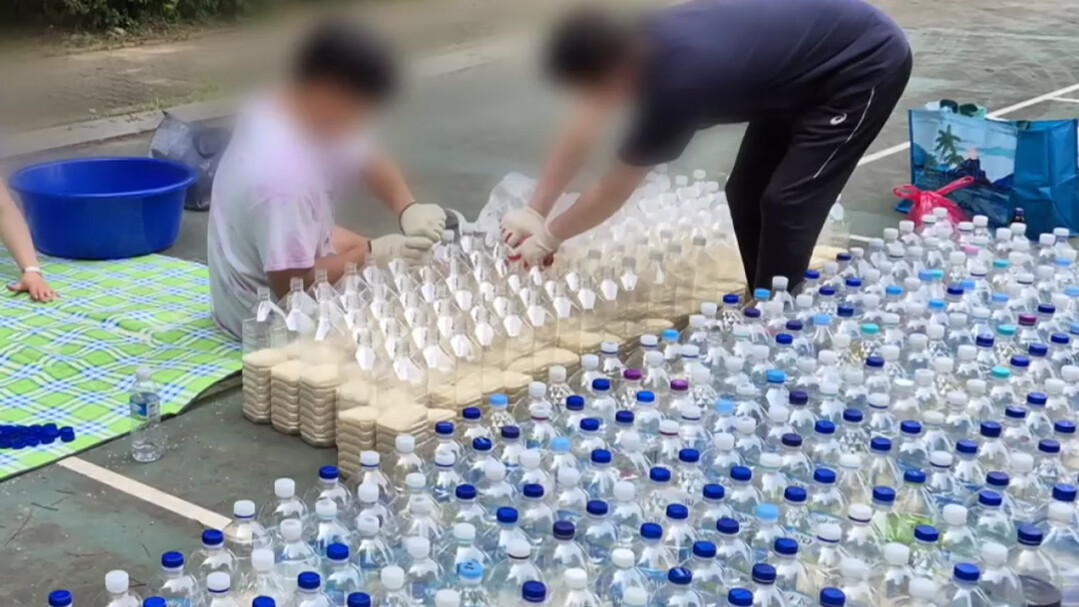
Incheon, South Korea – Six American nationals were apprehended by South Korean police on Friday, June 27, 2025, in Incheon's Ganghwa County for allegedly attempting to float a large number of plastic bottles containing rice, U.S. dollar bills, and religious texts towards North Korea. The incident, which occurred around 1:00 AM at the Mangwoldondae Watchtower in Hajeom-myeon, has reignited tensions surrounding cross-border civilian activities in a region under strict administrative orders.
The individuals, identified as U.S. citizens ranging in age from their 20s to 50s, were detained on suspicion of violating South Korea's Framework Act on the Management of Disasters and Safety. According to the Incheon Ganghwa Police Precinct, approximately 1,300 plastic bottles were prepared for dissemination. The contents of these bottles—staple food, foreign currency, and Bibles—are commonly used by activist and defector groups aiming to provide humanitarian aid and information to North Koreans.
The attempted launch was thwarted following a report from a nearby military unit, whose coastal surveillance operations detected the group's activities. Police swiftly responded, apprehending the individuals at the scene. Authorities have indicated that further investigation into the specific circumstances and motivations behind their actions will be conducted with the assistance of interpreters, as the suspects do not speak Korean fluently.
Legal Framework and Rising Tensions
The arrest underscores the South Korean government's increasingly stringent stance on unsanctioned cross-border activities. Ganghwa County has been under an administrative order since November 2024, explicitly prohibiting the distribution of materials towards North Korea. This local directive designates the area as a restricted or "danger zone," where unauthorized entry and activities like leaflet or bottle launches are proscribed.
The broader legal landscape surrounding these activities in South Korea is complex and contentious. While a previous "anti-leaflet law" (an amendment to the Development of Inter-Korean Relations Act) was ruled unconstitutional by the Constitutional Court in September 2023, citing freedom of expression, the current administration of President Lee Jae-myung has been actively seeking to curb such launches. President Lee has ordered government ministries to implement both preventive and punitive measures, emphasizing the need to protect the lives and safety of residents in border areas and de-escalate military tensions on the Korean Peninsula.
To navigate the Constitutional Court's ruling, authorities are now leveraging other existing statutes, including the Aviation Safety Act, the High-Pressure Gas Safety Control Act, and the aforementioned Framework Act on the Management of Disasters and Safety, along with the Public Waters Management and Reclamation Act. The Disaster Management Act, under which the Americans were charged, grants local authorities the power to restrict access or activities in designated hazard zones, a provision increasingly applied to areas prone to cross-border leaflet or bottle launches.
In recent weeks, the South Korean government has ramped up efforts, deploying police mobile units and strengthening patrols in key border areas to pre-emptively prevent such distributions. These measures come amid a renewed push to improve inter-Korean relations and prevent any actions that could provoke retaliatory responses from Pyongyang.
Historical Context and North Korea's Reaction
The practice of sending materials to North Korea via balloons or floating bottles has a long history, predominantly carried out by North Korean defectors and human rights activists. These groups often aim to send messages of hope, provide crucial information, and deliver necessities like food and medicine to ordinary North Koreans, who live under strict state control and information suppression. The items, including rice, U.S. dollars, and Bibles, are believed to be valuable to recipients in the isolated state, with USB drives containing foreign media or K-dramas sometimes also included.
However, North Korea vehemently condemns these acts, viewing them as psychological warfare and an infringement on its sovereignty. Pyongyang often refers to the distributed materials as "dirty wastepaper and things" and has, in the past, responded with strong verbal condemnations and even retaliatory actions, such as sending large numbers of trash-filled balloons into South Korea. Kim Yo-jong, the influential sister of North Korean leader Kim Jong-un, has frequently criticized these campaigns, threatening severe consequences for those involved.
The incident on Ganghwa Island highlights the delicate balance South Korea must strike between upholding freedom of expression and ensuring national security and the safety of its border communities amidst persistent inter-Korean tensions. The investigation into the six American nationals is ongoing, with authorities expected to clarify the full scope of their activities and their affiliations.
[Copyright (c) Global Economic Times. All Rights Reserved.]





























